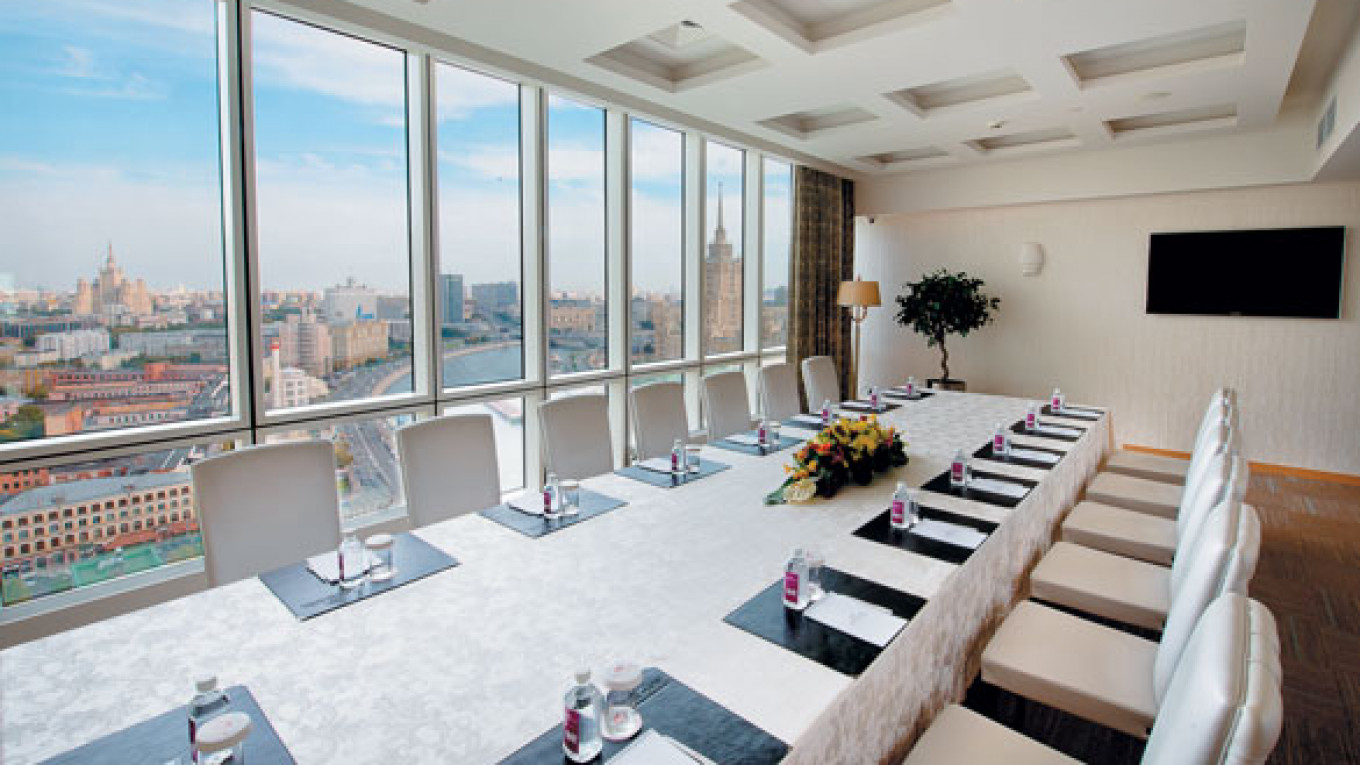Moscow is dividing into business districts, and investors are following the pattern. The next 12 months will see the delivery of more economy hotels in Moscow, including the further development of Paveletskaya, Kievskaya and Belorusskaya hubs.
The competition at this micro level is focused less on the brand as on where the hotel is, according to David Jenkins, head of hotels and hospitality, Russia and CIS, at Jones Lang LaSalle. "A business traveler to Paveletskaya can stay at the Ibis if he wants to be more cost efficient, or he can stay at the Swissôtel if he wants five stars."
The Aeroexpress has given a boost to businesses in areas like Belorusskaya, while a Marriott Courtyard hotel has opened near Paveletskaya Station and the surrounding business district. Novotel is opening the first hotel in Moskva-City business district. If Moscow's three railway stations, Kazansky, Leningradsky and Yaroslavsky, are connected to the three main airports, analysts say that district will become even more attractive.
The Leningradskaya Hotel is already proof of such a phenomenon, located on Kalanchevskaya Ulitsa, close to three main railway stations as well as Moscow metro's Red Line. General manager Konstantin Goryainov said, "Sometimes Russians, though not foreigners, think this is a disadvantage. In any big megapolis in Europe or the United States, this is seen as an advantage."
While hotels near train stations and business centers may not achieve the room rates of rivals in more glamorous locations, the business, mid-market and even economy hotels are the investor's best bet. "Luxury is more personal," said Scott Antel, partner and head of Hospitality and Leisure for Russia, CIS and Turkey, at DLA Piper. "Investments are still intended to make money, but the return is quicker with an economy hotel. If you look at the Ritz Carlton being bought by a family, then it's a trophy asset."
"The clever investor looking at Moscow would build economy hotels," Jenkins said. "You could put 20 Holiday Inn Express hotels and it would not scratch the surface. It's just getting access to land, to utilities, however much that costs, and getting financing."
Holiday Inn already has a strategy of placing hotels in key business districts, including Lesnaya, in the heart of the Belorusskaya business district; Sushchyovsky, close to VDNKh Exhibition Center and Simonovsky; in the southeast of Moscow on the route to Domodedovo.
But hotel development has been slowed by Moscow city government's review of construction permits, in the same way as office construction has been delayed, Antel said. "The price of land is the key issue. It is extremely expensive. And also access to land remains very political. "
Numbers illustrate the level of demand. There are about 15,000 rooms in Moscow of international quality. A further 20,000 to 25,000 rooms are not, according to Jenkins. "But those are also doing good business at price points, where in the UK you would be considering Holiday Inn Express, Premier Inn, but there is none of that here. One Ibis. One branded, recognized, economy hotel for the whole of Moscow."
More than 10 branded hotels are due to open this year, including the Marriott hotel and apartments on Novy Arbat. Most of the other hotels are outside the city center, including a Hilton at Vnukovo and a Sheraton at Sheremetyevo. Last year, operators opened five branded hotels and demand continues to outstrip supply.
Modern business hotels in Moscow trace their roots to the Mezhdunarodnaya Hotel at the World Trade Center, which predates the end of the Soviet Union, though it only became a Crowne Plaza hotel in 2006. The 724-room hotel, and adjoining WTC complex was famous as an "island of capitalism" and a mecca for foreigners with some of the city's most expensive restaurants. Today, 75 percent of its guests are traveling for business or attending the nearby Congress Center or Expocentre exhibition halls.
Despite a gradual increase in choice, Moscow remains the world's most expensive hotel destination for business travelers according a study by the UK's Hogg Robinson Group.
Moscow hotel rates for business travelers last year were the highest in the world for the ninth year running at an average of more than 12,831 rubles ($405). That's compared with the equivalent of $356 in Lagos and $349 in New York.
A Message from The Moscow Times:
Dear readers,
We are facing unprecedented challenges. Russia's Prosecutor General's Office has designated The Moscow Times as an "undesirable" organization, criminalizing our work and putting our staff at risk of prosecution. This follows our earlier unjust labeling as a "foreign agent."
These actions are direct attempts to silence independent journalism in Russia. The authorities claim our work "discredits the decisions of the Russian leadership." We see things differently: we strive to provide accurate, unbiased reporting on Russia.
We, the journalists of The Moscow Times, refuse to be silenced. But to continue our work, we need your help.
Your support, no matter how small, makes a world of difference. If you can, please support us monthly starting from just $2. It's quick to set up, and every contribution makes a significant impact.
By supporting The Moscow Times, you're defending open, independent journalism in the face of repression. Thank you for standing with us.
Remind me later.






